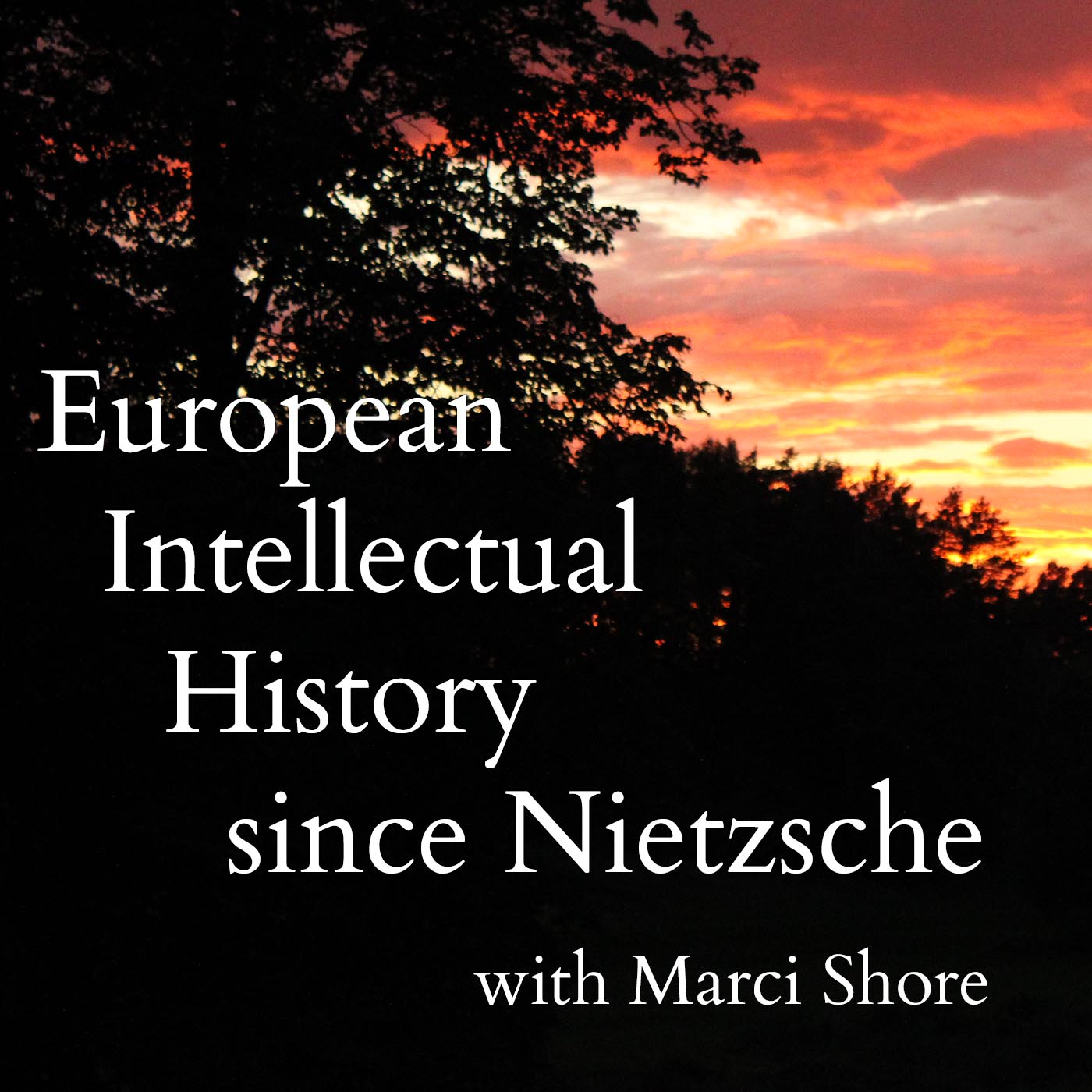

European Intellectual History since Nietzsche
Marci Shore
Ideas matter. They cross borders; they are cosmopolitan by their nature. Intellectual history is a history of intertwining conversations, a history of posing questions not easily—or ever—answered. HIST 271 is a survey of modern European intellectual history, sketching a narrative arc from the late 18th century transition to modernity through the late 20th century transition to post-modernity. (Modernity is largely about replacing God. Postmodernity begins when we give up on replacing God.) With Marci Shore, Associate Professor of History.
Episodes
Mentioned books

55 snips
Feb 7, 2024 • 50min
Class 15: Hannah Arendt, Totalitarianism and the Nature of Evil
Delve into Hannah Arendt's profound impact on our understanding of totalitarianism and the nature of evil. Explore how her insights connect Enlightenment thought to the rise of oppressive regimes. Discover the paradox of the bourgeoisie and the mob, revealing the dark dynamics that led to Nazism. Examine the shared potential for evil in humanity, questioning identities amidst the chaos of World War I. This thought-provoking discussion unravels the philosophical threads linking history, morality, and the human condition.

15 snips
Feb 7, 2024 • 52min
Class 14: The Frankfurt School
Dive into the fascinating world of the Frankfurt School, where existentialism and psychoanalysis collide. Discover the moral dilemmas faced during the Nazi occupation and how decision fatigue resonates today. Unpack the origins of critical thought against the backdrop of post-World War I chaos. Explore Walter Benjamin's life in exile, revealing the tensions between Marxism and Freudian thought. This journey through complex concepts sheds light on the struggle for identity and the search for meaning in a turbulent historical context.

23 snips
Feb 7, 2024 • 52min
Class 13: French Existentialism
Discover the intriguing world of French existentialism, focusing on Sartre's ideas about decision-making and personal agency. Explore how historical events influenced existential thought, from the Enlightenment to totalitarianism. Delve into childhood imagination and the concept of 'bad faith,' examining genuine choices versus fantasy. Analyze Sartre's critique of Freud's consciousness and the weight of freedom. Finally, reflect on moral dilemmas faced during World War II, revealing the profound legacy of existentialism in European thought.

49 snips
Feb 7, 2024 • 49min
Class 12: Heideggerean Existentialism
Delve into existentialism through the lens of Heidegger’s complex relationships and concepts. Discover how his mentor Husserl influenced his philosophies and the process of crafting 'Being and Time.' Explore the profound distinction between authentic and inauthentic living. Unpack Dasein's implications for understanding mortality and personal responsibility. Reflect on the interconnectedness of existence and the weight of being, questioning the nature of subjectivity in a rapidly changing modern world.

Feb 7, 2024 • 51min
Class 11: Phenomenology
Dive into the intricate world of phenomenology as Husserl's quest for knowledge takes center stage, addressing epistemological dilemmas from Descartes and Kant. Explore the tension between art and existential challenges through Mayakovsky's poignant story. Discover how the philosophy of perception reveals its relevance in contemporary society, with insightful anecdotes. A heartwarming dialogue between a parent and child brings humor to test anxiety, showcasing the practical application of 'bracketing' emotions amid life's complexities.

26 snips
Feb 7, 2024 • 50min
Class 10: Modernism and the Avant-Garde
Dive into the turbulent waters of modernism and the avant-garde, exploring the complexities of self-knowledge through Freudian insights. Examine the clash of instincts and societal norms, showcasing Kafka's existential themes. Discover how linguistic structuralism reshapes avant-garde literature, revealing the arbitrary nature of language. Witness the radical movement's liberation of words, challenging convention and reflecting on the emotional struggles of artists post-World War I. It's a journey of artistic freedom and the quest for meaning amidst chaos.

27 snips
Feb 7, 2024 • 52min
Class 9: Freudian Psychoanalysis
Dive into the intriguing world of Freudian psychoanalysis, where unconscious processes drive our thoughts and behaviors. Explore the complexities of repressed childhood trauma and its role in shaping society. Discover how the father-child dynamic intersects with religious belief and instinctual desires. Uncover the conflicts within the self and their effects on relationships. The discussion also touches on the broader implications of unchecked desires in modern society, suggesting both liberation and potential chaos.

26 snips
Feb 7, 2024 • 51min
Class 8: Leninism, the Rushing of History
Delve into the complexities of the Bolshevik Revolution, exploring time and history through thinkers like Nietzsche and Hegel. Discover Lenin's revolutionary vision, focusing on the awakening of worker consciousness and the vital role of intellectuals as vanguards of change. Contrast Marxist ideologies with modern social democracy while examining the tumultuous events of the 1905 Tsarist upheaval. Uncover the intricate dance of history, ideology, and radical thought that shaped modern European intellectual discourse.

9 snips
Feb 7, 2024 • 51min
Class 7: Henri Bergson – Revolt Against Positivism
Explore the clash between Henri Bergson's philosophy and positivism. Discover how Bergson's ideas on time challenge rigid, quantifiable perspectives, advocating for a more human-centered understanding. Delve into the concept of durée, emphasizing qualitative experiences over traditional measurements. The podcast also highlights the importance of effective communication during crises, drawing parallels to improvisational comedy. With insights that intertwine existentialist themes and historical context, listeners will gain a fresh perspective on modern thought.

30 snips
Feb 7, 2024 • 51min
Class 6: Nietzsche and the Death of God
Delve into Nietzsche's bold declaration that 'God is dead' and its ripple effects on modern thought. Explore the interplay between rationality and instinct as Nietzsche challenges traditional morality. Discover his complex relationship with Wagner and its profound impact on his philosophy. Unpack the concept of the übermensch and the existential crisis sparked by nihilism in a secular world. This journey through modernity reveals how Nietzsche influenced diverse ideas, bridging Romanticism and Existentialism.


